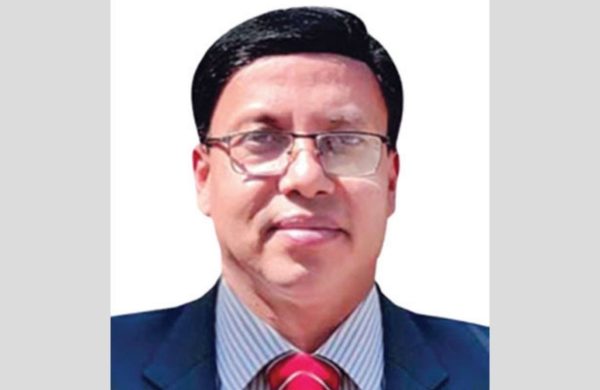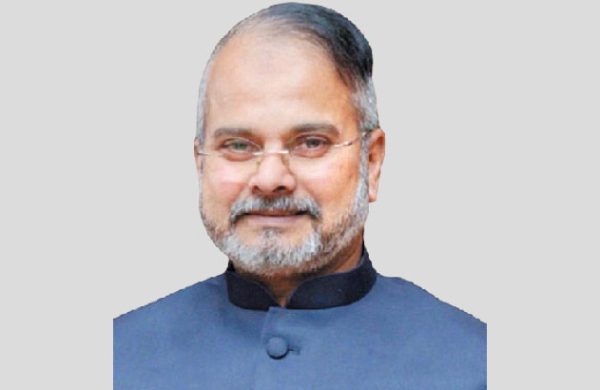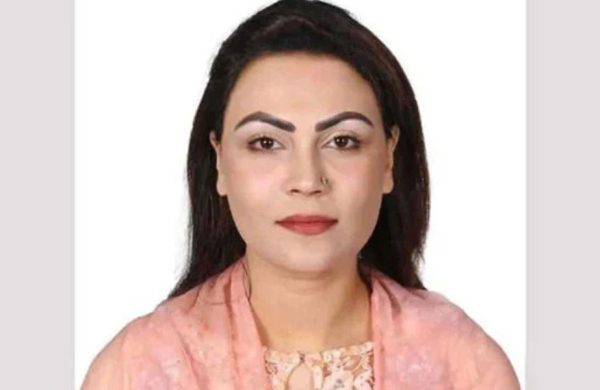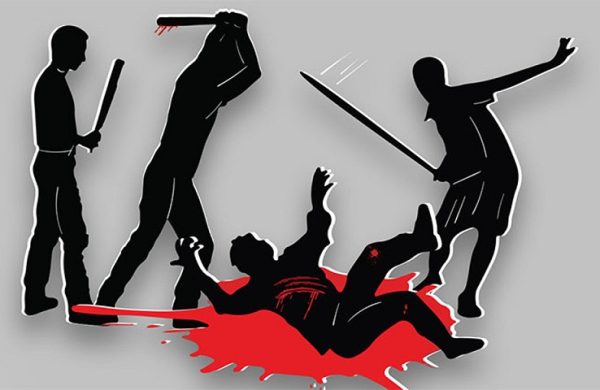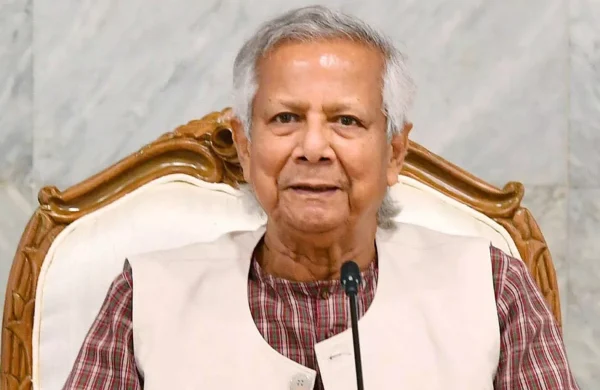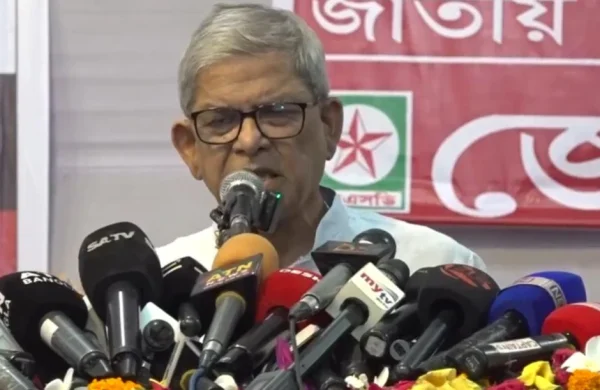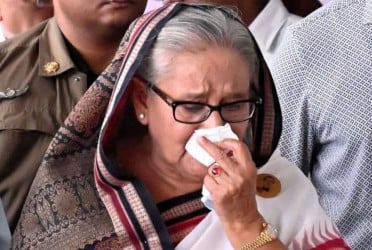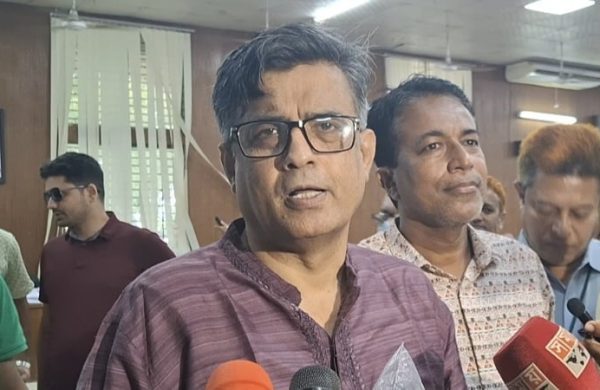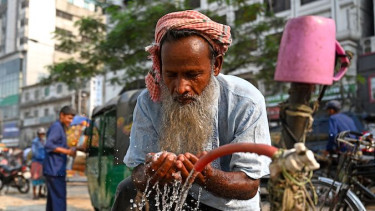Against law and humanity: Why India’s push-ins must stop
- Update Time : Tuesday, July 15, 2025
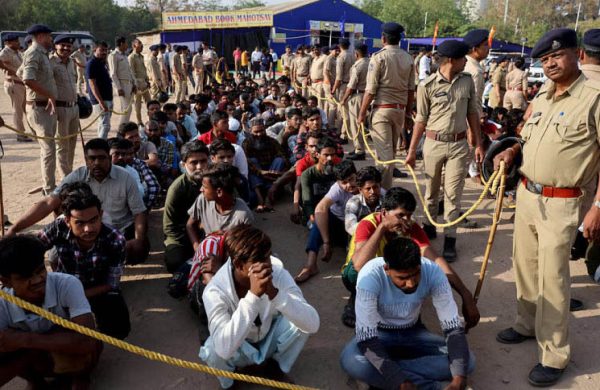
—Kallol Mustafa—
Despite repeated protests by the Bangladesh government and human rights groups in both countries, India’s controversial practice of forcibly pushing people into Bangladeshi territory—known as “push-in”—continues without legal or diplomatic justification. This push-ins involve a wide range of individuals, including alleged undocumented migrants who crossed over to India from Bangladesh years ago, Rohingya refugees registered with the UN High Commissioner for Refugees (UNHCR) in India, and even Bangla-speaking Indian Muslims from various states.
A BBC investigation has highlighted that many Assamese Muslims, despite holding valid documents and living in India for generations, have been rounded up and pushed across the border into Bangladesh. Similarly, The Hindu reported incidents where Bangla-speaking workers from West Bengal, employed in cities like Mumbai, were forcibly deported into Bangladesh by India’s Border Security Force (BSF). More than 200 Rohingya have so far been pushed into Bangladesh from India, including over 100 who were registered with the UNHCR in India.
If a citizen of one country illegally enters another country, they must be deported in accordance with bilateral agreements and international law. But the way India pushed these people into Bangladesh without following due process is completely illegal and against human rights and international norms.
This kind of push-ins by India was last observed around 2002-2003, when the BJP-led National Democratic Alliance (NDA) was in power. For example, on February 2, 2003, that around 200 Bangla-speaking individuals, including women and children, was forcibly sent across the Meherpur border at gunpoint by BSF personnel. Thousands more were reportedly gathered in areas such as Cooch Behar and Jalpaiguri for similar operations.
Although such actions subsided for a period, they have now resumed. This resurgence appears to be politically calculated, rather than a response to irregular migration. Some argue that, on the one hand, it reflects the BJP’s Hindutva agenda, which seeks to portray Muslims as outsiders and security threats. On the other hand, it seems to be a strategic pressure tactic directed at Bangladesh, especially after the fall of the Awami League regime, which was overly subservient to India, through a mass uprising.
Bangladesh has not retaliated or suspended India’s access to transit routes and ports in response, nor has it revoked trade or security cooperation. In contrast, India has recently withdrawn certain transit privileges unilaterally, restricted imports from Bangladesh through land ports and, most alarmingly, continued cross-border shootings that result in the deaths of Bangladeshi civilians by the Indian BSF.
Push-ins, therefore, could be seen as part of a broader pattern of pressurising diplomacy and unilateralism. If India were genuinely concerned about illegal migration, it would have opted for dialogue, verification, and repatriation under international law. Instead, individuals—often blindfolded, abused, and left without food—are being dumped across the border in an inhumane manner. This has nothing to do with border security; it is a deliberate effort to unsettle, embarrass, and pressure a sovereign neighbour.
Bangladesh and India have formal agreements to manage border issues cooperatively. These include the 1975 Joint India-Bangladesh Guidelines for border authorities of the two countries and the 2011 Coordinated Border Management Plan (CBMP). Through dialogue under these protocols, it is possible to resolve all kinds of border problems, including human trafficking and undocumented migration. For example, the CBMP has designated responsible officers (nodal officers) from India’s BSF and Bangladesh’s BGB to resolve issues such as illegal infiltration and human trafficking. Their job is to take initiatives to resolve any disputes regarding border management peacefully through dialogue and, if necessary, to inform higher authorities. Unilateral actions like mass push-ins, therefore, violate these standing agreements. They undermine trust and erode the institutional mechanisms that were built over decades to handle precisely these sorts of situations.
India’s actions also constitute a clear breach of international law. Article 13 of the International Covenant on Civil and Political Rights (ICCPR) stipulates that no lawfully residing individual may be expelled from a country without due legal process. Article 12(4) of the same covenant asserts that no one can be arbitrarily denied the right to enter their own country.
The United Nations Human Rights Committee has interpreted these provisions to extend protections not only to legal citizens but also to long-term residents who may lack documentation. Both Bangladesh and India are parties to the ICCPR, and thus legally bound by its terms. So, India is directly violating this international agreement by pushing its Bangla-speaking citizens and long-term residents into Bangladesh.
Furthermore, Article 22 of the International Convention on the Protection of the Rights of All Migrant Workers and Members of Their Families clearly prohibits collective expulsions and requires that each case be individually assessed under due legal procedure.
Other international instruments that echo the same principle, include Article 4 of Protocol No 4 of the European Convention on Human Rights; Article 22(9) of the American Convention on Human Rights; Article 12(5) of the African Charter on Human and Peoples’ Rights; and Article 26(1) of the Arab Charter on Human Rights.
So, India is clearly violating numerous international laws, customs, and conventions by pushing Bangla-speaking people, who have been living in that country for a long time, and Rohingya refugees into Bangladesh en masse.
India’s approach to border management has long been hawkish, often violent. The extrajudicial killings of Bangladeshi civilians by BSF have drawn global condemnation. Now, with the added dimension of large-scale push-ins, India is escalating its disregard for bilateral and international norms.
The Bangladesh government must act with resolve. While diplomatic channels should remain open, the issue must also be internationalised. The UN and relevant international bodies should be engaged to mediate and document these violations. If Bangladesh, even under the leadership of the internationally recognised Nobel Laureate Dr Muhammad Yunus, fails to bring this issue to the global stage, it would be doing a disservice to both national sovereignty and human dignity.
————————————————————————————–
Kallol Mustafa is an engineer and writer who focuses on power, energy, environment, and development economics. He can be reached at [email protected].


